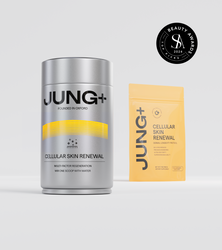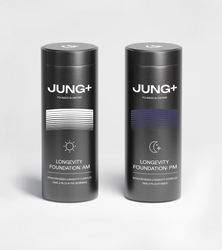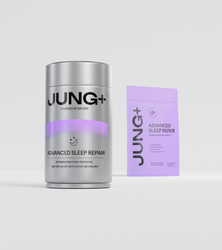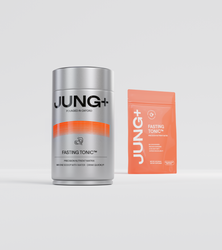In the quest to extend healthspan and reduce the effects of aging, researchers have increasingly focused on natural compounds with time-tested uses. Among these, Astragalus membranaceus, a revered herb in traditional Chinese medicine, has captured scientific interest for its potential in supporting cellular health, protecting against aging markers, and promoting overall longevity. This article explores the scientifically-backed benefits of Astragalus, emphasizing its mechanisms, health impacts, and implications for longevity.
What is Astragalus?
Astragalus membranaceus, often referred to simply as Astragalus, is a perennial plant known for its adaptogenic properties—herbs that help the body resist stress. Traditionally, Astragalus has been used to enhance energy, support the immune system, and improve resilience. Now, modern research is shedding light on its potential anti-aging and longevity-enhancing benefits, especially through compounds like astragalosides and polysaccharides.
Key Compounds in Astragalus Linked to Longevity
The anti-aging effects of Astragalus are attributed to several bioactive compounds:
- Astragalosides (particularly Astragaloside IV): Known to activate telomerase, an enzyme responsible for telomere maintenance.
- Cycloastragenol: This compound has shown promise in studies for its telomerase-activating effects, potentially delaying cellular aging.
- Polysaccharides: Exhibiting antioxidant, anti-inflammatory, and immune-supporting effects.
These compounds interact at the cellular level to promote healthy aging, making Astragalus a unique candidate for longevity support.
Primary Longevity Benefits of Astragalus
1. Telomerase Activation and Telomere Maintenance
A hallmark of aging is the shortening of telomeres, protective caps at the ends of chromosomes. Each time a cell divides, telomeres shorten, eventually leading to cellular senescence, or the inability of cells to divide further. Telomerase is the only enzyme that can restore telomere length, but its activity naturally declines with age.
Astragalus’s astragalosides, particularly Astragaloside IV and cycloastragenol, have been shown to activate telomerase, providing a potential means to delay telomere shortening. In a 2024 randomized, double-blind, placebo-controlled study published in Nutrients, participants aged 40-70 took an astragalus-based supplement for six months. The findings indicated a statistically significant increase in telomere length in the supplement group, with no adverse side effects reported (de Jaeger et al., 2024). This suggests that Astragalus may support cellular youthfulness by promoting telomere stability and longevity.
2. Delaying Cellular Senescence
Beyond telomere support, Astragalus also helps delay cellular senescence, the process by which cells lose function and enter a state of “biological retirement.” Astragalus’s antioxidant properties, largely due to its high polysaccharide content, reduce oxidative stress—a major contributor to cellular aging. Oxidative stress damages cellular structures and can accelerate senescence. By neutralizing free radicals, Astragalus protects cells and supports their functional lifespan.
3. Mitochondrial Health and Energy Production
Healthy mitochondrial function is essential for energy production, resilience, and longevity. As we age, mitochondrial function tends to decline, leading to reduced energy levels and greater susceptibility to age-related diseases. Astragalus polysaccharides have been shown to enhance mitochondrial health, supporting cellular energy production and reducing mitochondrial DNA damage. According to a 2012 study in the International Journal of Molecular Sciences, Astragalus polysaccharides protected mitochondria from oxidative stress and enhanced ATP production, a key indicator of cellular energy (Li et al., 2012).
4. Immune System Support
The aging process, or immunosenescence, often weakens the immune system, increasing vulnerability to infections and chronic illnesses. Astragalus has demonstrated immune-modulating properties, enhancing the activity of white blood cells and stimulating macrophages, which are essential for eliminating harmful pathogens. Studies indicate that regular use of Astragalus can boost overall immunity, making it beneficial for those looking to maintain a resilient immune system as they age.
5. Anti-Inflammatory Properties
Chronic inflammation is a recognized driver of aging and age-related diseases, often referred to as “inflammaging.” Astragalus contains bioactive compounds that reduce inflammation, supporting joint health and overall vitality. Inflammation accelerates cellular wear, but the anti-inflammatory effects of Astragalus help to protect cells from this damage, providing a buffer against premature aging.
Functional Health Benefits of Astragalus
In addition to its anti-aging properties, Astragalus offers several functional health benefits, supporting overall wellness and resilience.
Cardiovascular Health
Astragalus has shown promise in supporting cardiovascular health by reducing oxidative stress and inflammation, two key factors linked to heart disease. Additionally, its anti-inflammatory properties may reduce arterial stiffness, a factor in age-related cardiovascular decline. Although more research is needed to understand these mechanisms fully, these preliminary findings suggest Astragalus could be valuable for cardiovascular support.
Enhanced Vitality and Stamina
As an adaptogen, Astragalus helps the body adapt to stress and improves overall vitality. This energy-boosting effect is beneficial for individuals seeking to maintain active lifestyles as they age. By promoting mitochondrial health, Astragalus supports sustained energy levels, making it a favorite among those looking to counteract age-related fatigue.
Potential Neuroprotective Effects
Emerging research suggests that Astragalus may support cognitive health by protecting neurons from oxidative stress. Although studies are still in their early stages, animal studies indicate that Astragalus’s antioxidants may protect brain cells, potentially offering benefits for cognitive resilience. However, more research is required to verify these effects in human trials.
The Science Behind Astragalus and Longevity
Astragalus’s longevity benefits are supported by several studies, each highlighting different aspects of the herb’s potential:
Telomerase Activation Study: A study by Harley et al. (2013) in Rejuvenation Research explored the effects of a natural telomerase activator derived from Astragalus on metabolic and cardiovascular health. The findings suggested improvements in biomarkers associated with aging, offering support for Astragalus’s anti-aging properties.
Telomere Length Study: de Jaeger et al. (2024) conducted a randomized, double-blind, placebo-controlled study in Nutrients to measure the impact of Astragalus on telomere length. The study found that after six months, individuals taking Astragalus experienced significant telomere lengthening, potentially promoting cellular youthfulness.
Mitochondrial Protection Study: Li et al. (2012) published findings in the International Journal of Molecular Sciences showing that Astragalus polysaccharides enhance mitochondrial health and protect against oxidative stress, supporting cellular energy production and vitality.
Immunomodulation and Anti-inflammatory Properties: The immune-boosting and anti-inflammatory effects of Astragalus are well-documented, with studies demonstrating enhanced white blood cell activity and reduced markers of inflammation. These effects position Astragalus as a valuable tool for supporting immune resilience, especially in aging populations.
Conclusion
Astragalus stands out as one of the most researched and promising natural ingredients for supporting healthy aging and longevity. With its ability to activate telomerase, enhance mitochondrial health, and modulate immune response, Astragalus addresses several aging hallmarks at the cellular level. As an adaptogen with powerful antioxidant and anti-inflammatory effects, Astragalus can be an effective component of a longevity-focused regimen, supporting both vitality and resilience in the face of age-related challenges.
For those looking to support their health through scientifically-backed natural interventions, Astragalus offers an array of benefits that go beyond traditional supplementation. By integrating Astragalus into a balanced wellness plan, individuals can leverage its protective and rejuvenating properties to support a longer, healthier lifespan.





















